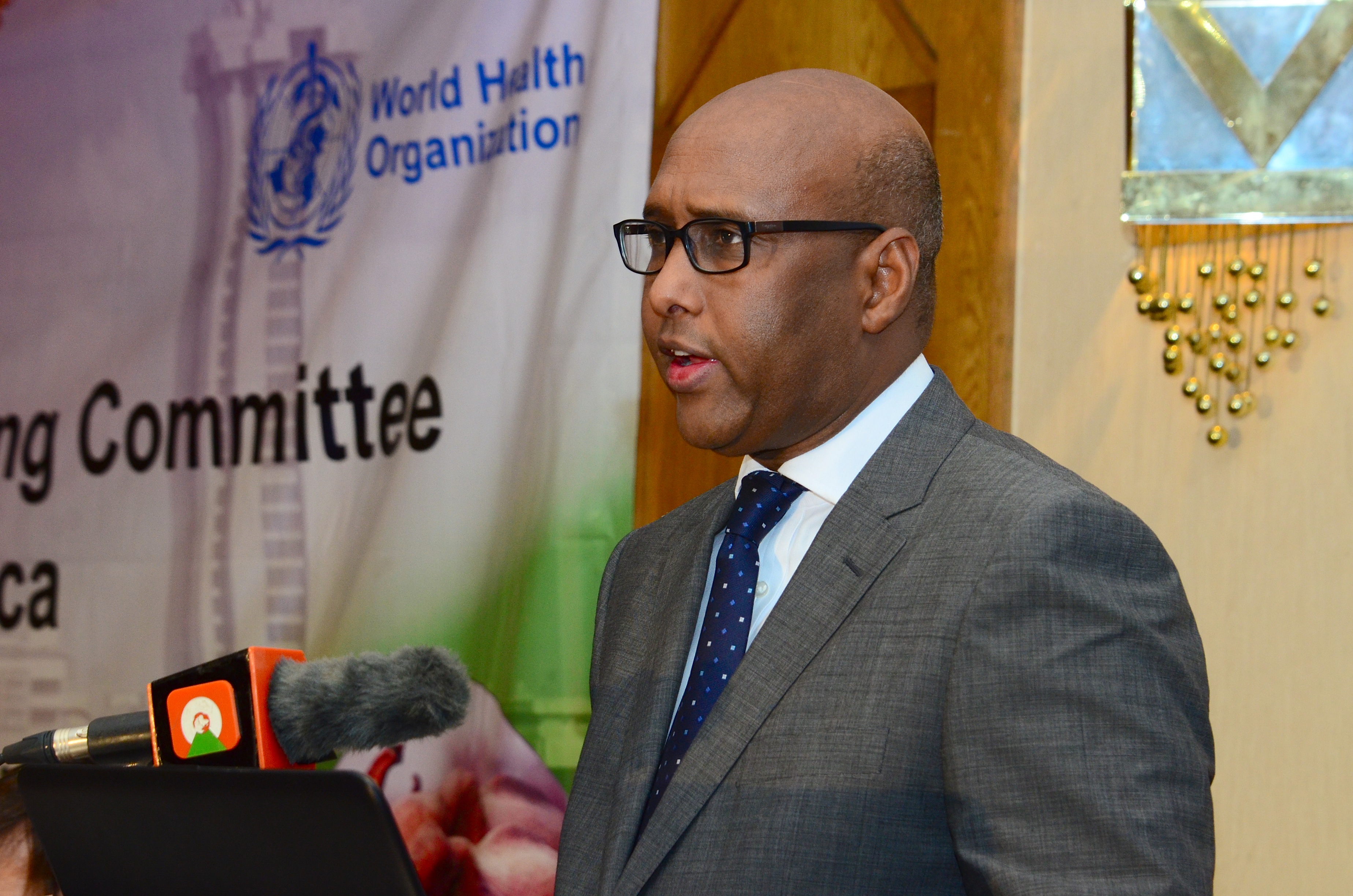A united African voice for Codex
The 20th session of the FAO/WHO Regional Coordinating Committee for the African region began yesterday in Nairobi, Kenya.
The continent of Africa consists of 54 very diverse countries covering 11.7 million square miles. Trade in region now runs in excess of 50 billion USD a year.
Delegates from the 49 countries that make up the CCAFRICA region are meeting to address the food safety and trade issues most relevant to Africa.
Hon Adan Mohammed opens CCAFRICA22
Hon Adan Mohammed, Cabinet Secretary for the Kenyan Ministry of Industry, Trade and Co-operatives opened the session and reminded delegates that it was their collective participation in Codex that facilitated trade and led to protection of both consumers and the environment.
The Cabinet Secretary of the Ministry of Agriculture, Livestock, Fisheries and Blue Economy, Hon. Willy Bett also addressed delegates and stressed the importance of standards not only for trade but also for food consumed by local people who were often the most vulnerable.
Dr Moses Gichia, Deputy Director of the State Department of Livestock of Kenya highlighted the main food safety issues in the region.
Food safety control systems have been under unprecedented pressure during outbreaks of foodborne illnesses which have led to loss of life and adversely affected trade and the general economy. The 2015 WHO Report on the burden of foodborne diseases was explicit on the need to improve food safety in Africa. Non-typhoidal Salmonellosis and diarrheal diseases have ruthlessly affected children. Aflatoxicosis and malnutrition are also of concern.
Effective participation in Codex meetings and observation of Codex Standards are no longer optional in the current global arena.
The meeting runs until Friday 20th January and full details are available on the meeting webpage.
At the heart of the Codex mandate are the core values of collaboration, inclusiveness, consensus building and transparency. Governmental and non-governmental, public and private organizations alike play a vital role in ensuring Codex texts are of the highest quality and based on sound science.
Codex would have little authority in the field of international standard setting if it did not welcome and acknowledge the valuable contributions made by observers. Expert technical bodies, industry and consumer associations
contribute to the standard-setting process in a spirit of openness, collaboration and transparency.
Intergovernmental organizations (IGOs) and international non-governmental organizations (NGOs) can apply for observer status in Codex in order to attend and put forward their views at every stage of the standard-setting process.
 Current Codex Alimentarius Commission
Current Codex Alimentarius Commission
A united African voice for Codex
The 20th session of the FAO/WHO Regional Coordinating Committee for the African region began yesterday in Nairobi, Kenya.
The continent of Africa consists of 54 very diverse countries covering 11.7 million square miles. Trade in region now runs in excess of 50 billion USD a year.
Delegates from the 49 countries that make up the CCAFRICA region are meeting to address the food safety and trade issues most relevant to Africa.
Hon Adan Mohammed opens CCAFRICA22
Hon Adan Mohammed, Cabinet Secretary for the Kenyan Ministry of Industry, Trade and Co-operatives opened the session and reminded delegates that it was their collective participation in Codex that facilitated trade and led to protection of both consumers and the environment.
The Cabinet Secretary of the Ministry of Agriculture, Livestock, Fisheries and Blue Economy, Hon. Willy Bett also addressed delegates and stressed the importance of standards not only for trade but also for food consumed by local people who were often the most vulnerable.
Dr Moses Gichia, Deputy Director of the State Department of Livestock of Kenya highlighted the main food safety issues in the region.
Food safety control systems have been under unprecedented pressure during outbreaks of foodborne illnesses which have led to loss of life and adversely affected trade and the general economy. The 2015 WHO Report on the burden of foodborne diseases was explicit on the need to improve food safety in Africa. Non-typhoidal Salmonellosis and diarrheal diseases have ruthlessly affected children. Aflatoxicosis and malnutrition are also of concern.
Effective participation in Codex meetings and observation of Codex Standards are no longer optional in the current global arena.
The meeting runs until Friday 20th January and full details are available on the meeting webpage.
 Codex and Observer
Codex and Observer
around the world since ancient times.
We might not always know where it comes from,
but we expect it to be available, safe and of good quality.











Leave a comment